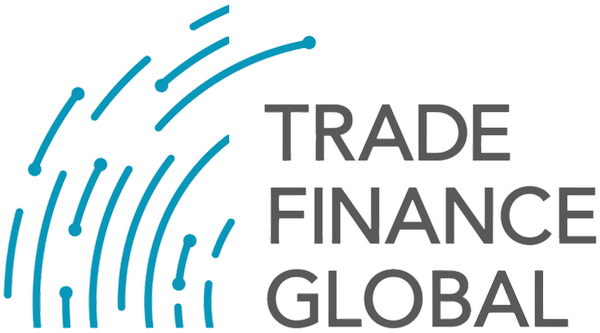- Climate-related risks are growing more severe as disasters grow more frequent.
- The Allianz Trade Sustainability Handbook outlines the company’s reasons for and strategies towards the goal of net zero by 2050.
- The problem is worst in emerging markets, meaning investors and underwriters have more trouble funding sustainable projects there.
Allianz Trade, the global trade credit insurance provider, released its first trade sustainability handbook yesterday, detailing its progress in reaching its environmental, social, and governance (ESG) objectives and the company’s approach to sustainability going forward.
Trade is responsible for 23% of emissions globally, a number that grows every year. However, research by the World Bank suggests that the solution to climate change also lies in trade – while reducing imports would raise emissions globally, trade efficiently redistributes production to the least emissions-intensive country.
As a result, global trade enablers like Allianz Trade are in a unique position to drive the transition to net zero. As risks related to climate change grow each year – from extreme weather events disrupting trade to global warming-related electricity outages – companies must be aware of the impact of climate change and become adaptable and resilient to it.
An all-around ESG strategy
Companies which are wide awake to the impact of climate change have been making sustainability a top priority. “Climate change and new societal expectations are reshaping our role as insurer, employer, and corporate citizen,” said Florence Lecoutre, Board Member in charge of Sustainability at Allianz Trade.
Allianz Trade’s Sustainability Handbook outlines the firms’ sustainability vision, its impact so far, and the road ahead. As part of Allianz Group’s goal of reaching net zero by 2050, Allianz Trade has committed to massively lowering its carbon footprint in the next few years – and has already come a long way, reaching 100% renewable electricity usage in 2023 and reducing greenhouse gas emissions per employee by 60%.
Allianz Trade is also on the way to achieving a fully ESG-aligned portfolio, by supporting low-carbon and net zero projects and refusing new contracts with high-emission clients like oil and gas companies. This diverts funding from emission-intensive firms and towards projects which align with ESG criteria, accelerating the transition away from fossil fuels. “At Allianz Trade, sustainability is not just an ambition – It is a responsibility embedded in the way we operate,” said Aylin Somersan Coqui, CEO of Allianz Trade.
Transitions through partnerships
As part of its mission to support the green transition, Allianz Trade launched two new products – Specialty Credit and Surety Green2Green – aimed at supporting companies undertaking low-carbon or green energy tech projects. A prospective client’s project is assessed to see if it aligns with Allianz Trade’s sustainability goals; then, “If it meets our criteria, the premiums we earn from this transaction are […] held as investments in certified green bonds,” said Soenke Schottmayer, Head of Commercial – Global Surety.
Allianz Trade is also collaborating with multilateral organisations to provide insurance to sustainable development programmes. A recent project to provide electric buses to the Baltic region, underwritten by the firm, reduced greenhouse gas emissions by 15% and cut carbon dioxide (CO2) emissions by over two tonnes.
Meanwhile, a recent partnership between Allianz Trade and the International Finance Corporation (IFC) – the major global development institution providing finance to firms in developing countries – is enabling sustainable growth in emerging markets.
A £150 million contribution to the IFC’s managed co-lending portfolio programme is helping the IFC expand access to financing for SMEs, women-led businesses, and climate-focused projects.
Emerging economies, and especially their SMEs, are often the hardest hit by the trade finance gap as a lack of collateral and low levels of capital make it difficult to get insurance or access financing. This makes it even harder to find investors and underwriters for green energy projects, which are often vulnerable to political risk and fast-shifting regulations.
Insuring net zero
While much is said about the global trade finance gap, estimated at £1.87 trillion, the massive underinsurance of trade and assets is just as urgent an issue. An estimated £122 billion globally is underinsured, with the vast majority of it in developing countries, especially in the areas that are most vulnerable to climate-related risks.
Extreme weather events, global warming, and rising sea levels expose global trade to a range of risks, which are only set to rise in the next few years. Allianz Trade is incorporating climate and sustainability factors into its risk-assessment processes, for example, by introducing ESG criteria in country risk analyses. This will both provide a clearer, more accurate picture of the risks associated with projects and investments and encourage prospective clients to work on improving their ESG commitments.
Starting this year, Allianz Trade will refuse new contracts and stop renewing existing policies with large oil and gas companies without a net zero commitment by 2050, as well as firms involved in the coal, oil sands, and methane exploration industries.
—
Trade credit insurance, which protects exporters and importers from the risks inherent to trade like delays and non-payment, is a crucial facilitator of the global economy. By decarbonising their portfolio, insurers can force markets to keep up with the transition to net zero and incorporate sustainability into their practices.
Pushed by regulations and stakeholders who are becoming more and more aware of the opportunities of sustainability and the dangers of climate change, insurers and finance providers worldwide will follow Allianz Trade’s lead and incorporate ESG into their investment decisions. Net zero is for the benefit of profit incentives, the environment, and the future.





























